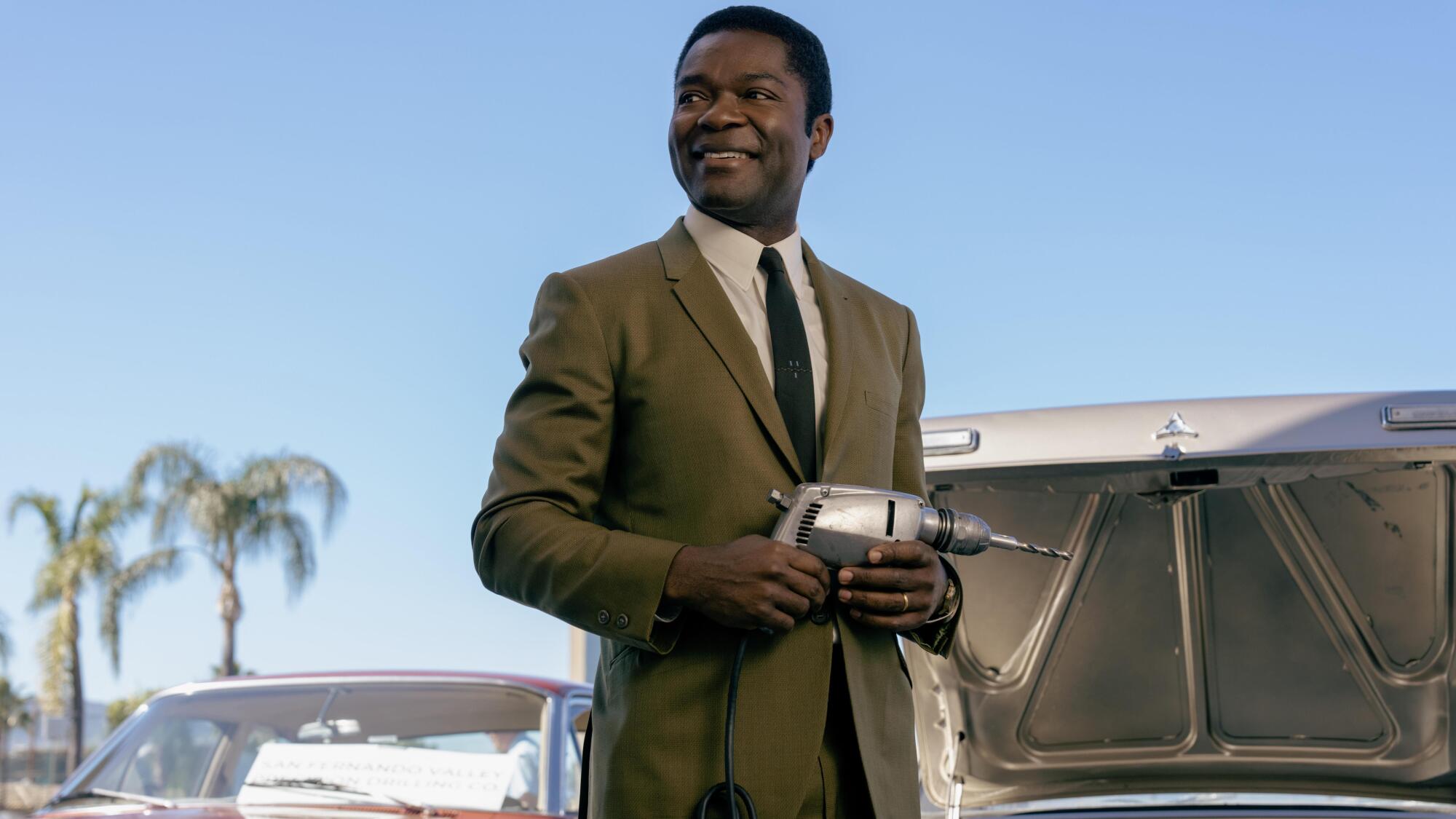David and Jessica Oyelowo wear many hats — spouses, parents, actors, producers, directors, writers — and more often than not, they are filling these roles in tandem. But above all, the Oyelowos are storytellers. And through their production company, Yoruba Saxon, they hope to use the stories they tell to generate empathy in the world, placing marginalized people at the epicenter of the universes they create.
“David coined this phrase, ‘normalizing the marginalized,’” Jessica explains when we chat on a video call in April, sitting next to David in their Southern California home. “Making people the protagonist of their own stories where they’re fully human, fully realized and beautiful and complicated and difficult and wonderful, because those were not the kinds of roles that were available to us.”
The couple, who met as teenagers while performing in youth theater in England and got married in their early 20s, found it hard to break into the TV industry there.
“I’m going to be careful with what I say, but it was really hard for us, particularly for David, to be able to get the things we wanted made,” says Jessica.
David interjects with a more blunt assessment: “I’ll be less careful than Jess and say that we like our racism and misogyny cold and in our face. That is certainly one of the beauties of living in America. It’s very obvious. The U.K. is world-class at couching those elements in nicety, the class system …”
“Colonization. ‘We’re coming to help you,’” adds Jess.
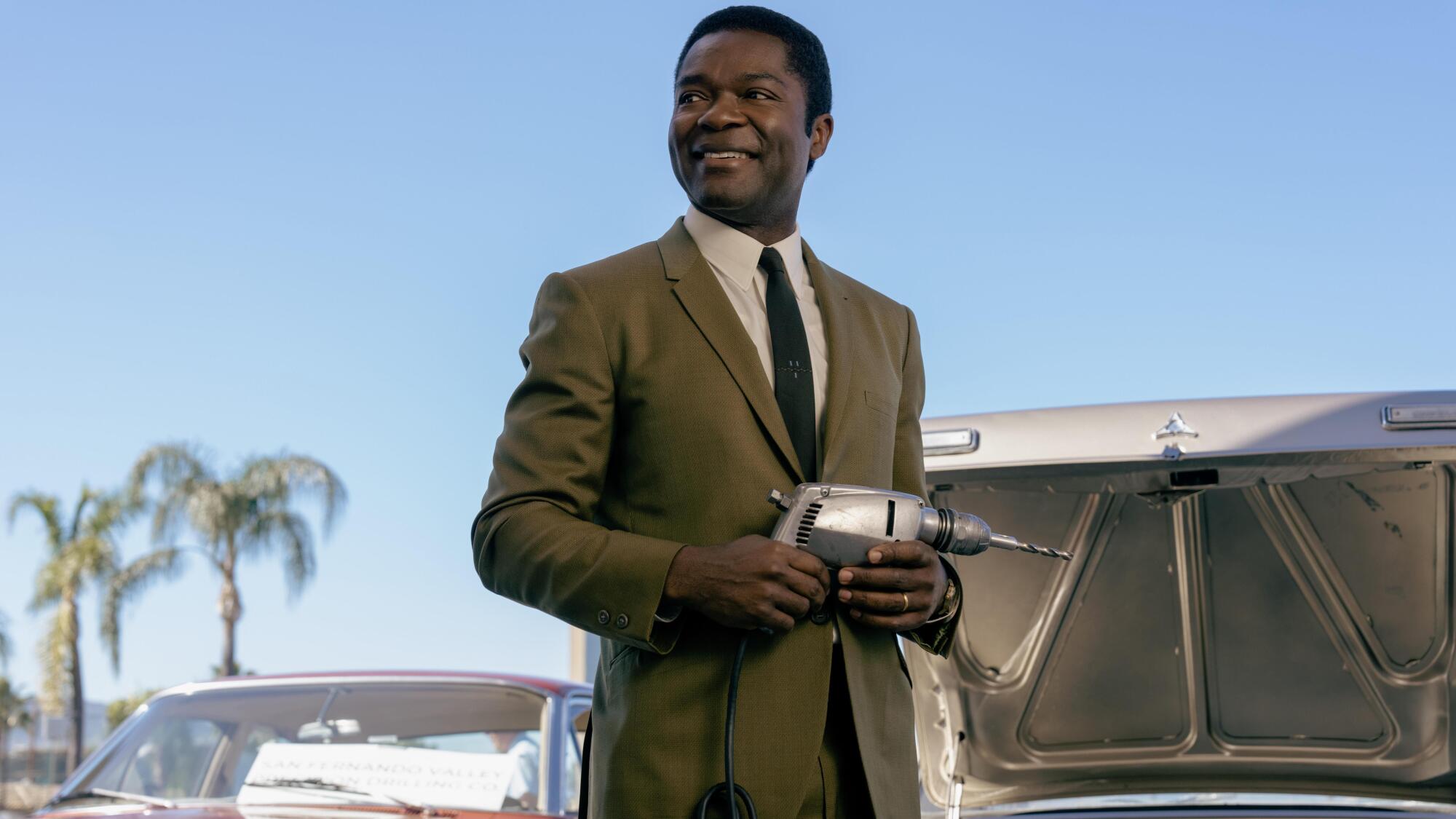
David Oyelowo in “Government Cheese,” a surrealist family comedy set in the San Fernando Valley in the 1960s.
(Apple TV+)
Upon moving to the U.S. in 2007, they found that roles for Black men in film and TV often were limited to drug dealers and criminals, slaves and servants. As for women, Jessica remembers a character description calling for a woman with “perky t— and a flat stomach.”
“I actually took that audition just so I could tell the director how disgusting it was,” says Jessica. “Then he wanted to give me the job! I was like, ‘No, are you crazy?’”
She continues, “I’m so much more than a smart, sexy something and he’s so much more than the stereotypical roles that were being offered to Black men at the time.”
As the couple continued raising their four children and focusing on their careers, they decided to create the roles they were looking for themselves. In 2014, they founded their production company. “We didn’t set out to be producers,” David says. “Necessity was definitely the mother of invention. I can’t wait around for someone else to make the things, the likes of which we want to be in and see in the world. We have to use whatever platform, notoriety, talent and connections we have to do it ourselves.”
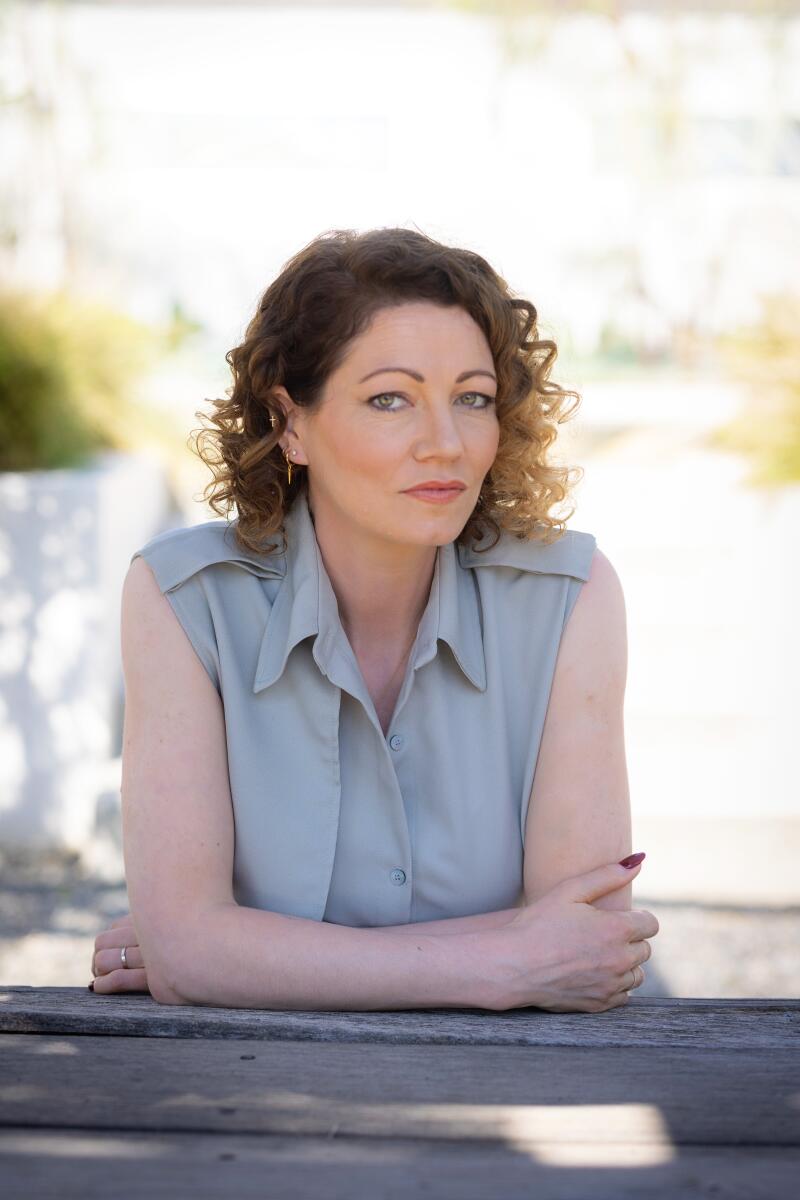
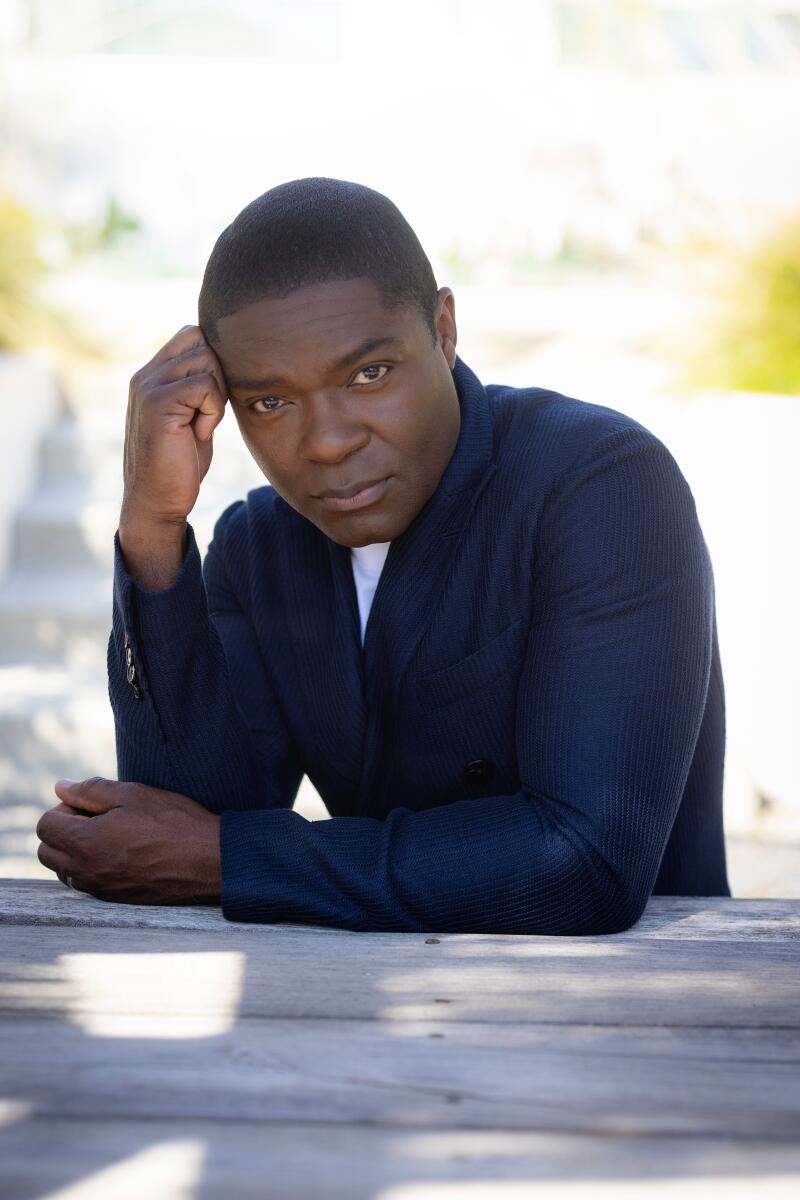
Jessica and David Oyelowo. (Jason Armond / Los Angeles Times)
The company’s name melds their two cultures — David is of Yoruba and Igbo descent, and Jessica is Anglo-Saxon. The company currently has a team of seven people, including the Oyelowos, and the pair credits that team for their successes. Together they’ve developed projects like Paramount+ series “Lawmen: Bass Reeves”; David’s directorial debut, “The Water Man”; and Jessica’s documentary “Becoming King.” On April 16, Apple TV+ premiered the 10-episode series “Government Cheese,” in which David stars — part of Yoruba Saxon’s first-look deal with the platform.
Set in the San Fernando Valley in the late 1960s, the series, created by Paul Hunter and Aeysha Carr, features David as the zany, faith-driven Hampton Chambers, newly released from prison and determined to sell his self-sharpening drill to an aerospace company while also trying to win back the respect of his wife and two sons.
“It’s parabolic, absurdist, quirky family comedy, and you could see a world in which a network or studio may think, ‘Let’s make it grounded.’ But that’s not what we set out to do,” David says of the series’ surreal sensibility.
“Why can’t we do stuff the likes of Wes Anderson or Spike Jonze or Paul Thomas Anderson?” he continues. “We love watching that stuff. We never get to be in that stuff. We never see ourselves represented in that stuff. Why can’t we be expansive in our storytelling?”
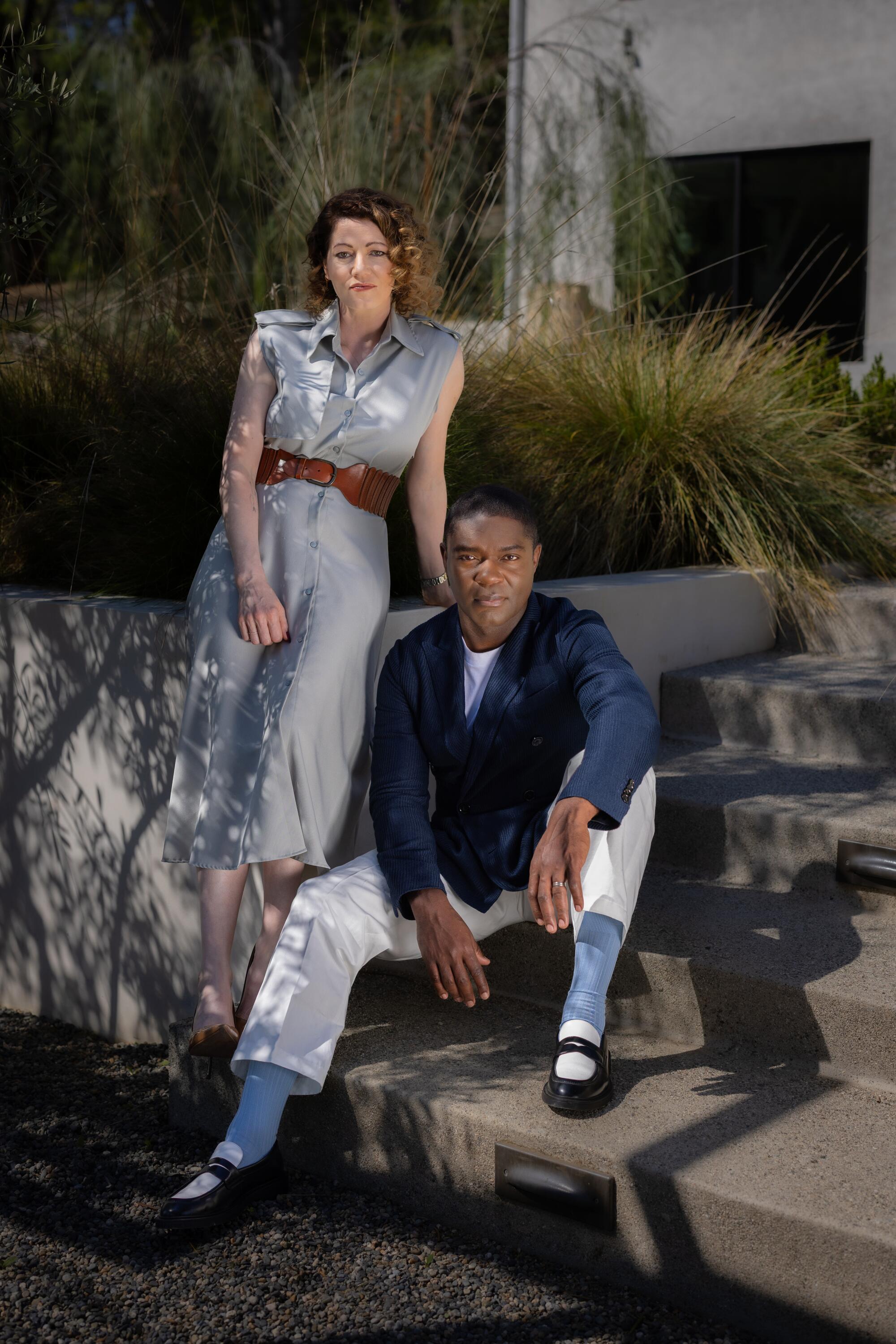
“We didn’t set out to be producers,” David Oyelowo says, but “I can’t wait around for someone else to make the things, the likes of which we want to be in and see in the world.”
(Jason Armond / Los Angeles Times)
“‘Government Cheese’ is one of the most incredible examples of joy in normalizing the marginalized,” says Jessica. “When you’ve got a Black family in Los Angeles in the 1960s and it has nothing to do with civil rights, it has nothing to do with oppression.”
“They’re political acts,” adds David. “When so much of what you see over the ’60s when it comes to Blackness is struggle, it’s radical to see joy and to be able to laugh and for it to be surreal.”
I bring up the novel “Onyeka and the Academy of the Sun,” by British Nigerian author Tọlá Okogwu. It’s a middle-grade science fiction book about a young girl with psychokinetic powers that has turned into a four-book series. Yoruba Saxon and Will Smith’s Westbrook Studios partnered with Netflix to adapt the book into a film.
“‘Onyeka’ is an absolute bull’s-eye for what we are looking to make, but it is also symptomatic of the challenge we have,” says David. “We gained traction with that project in the wake of the George Floyd murder and in a moment where there was a cultural correction and people seemed to want to do better. But now we’re in a moment where it’s evident that a lot of that was performative and not bone-deep. Projects like that suddenly become challenged. ‘Onyeka’ being one, ‘Return of the Rocketeer’ at Disney being another.”
And while the current political climate may put some of their stories at risk, it doesn’t change the way they will tell those stories. In fact, it energizes them further.
As David says, “Attack on DEI or not, we’ve been doing it before there was all this energy around it and we will be doing it after.”
